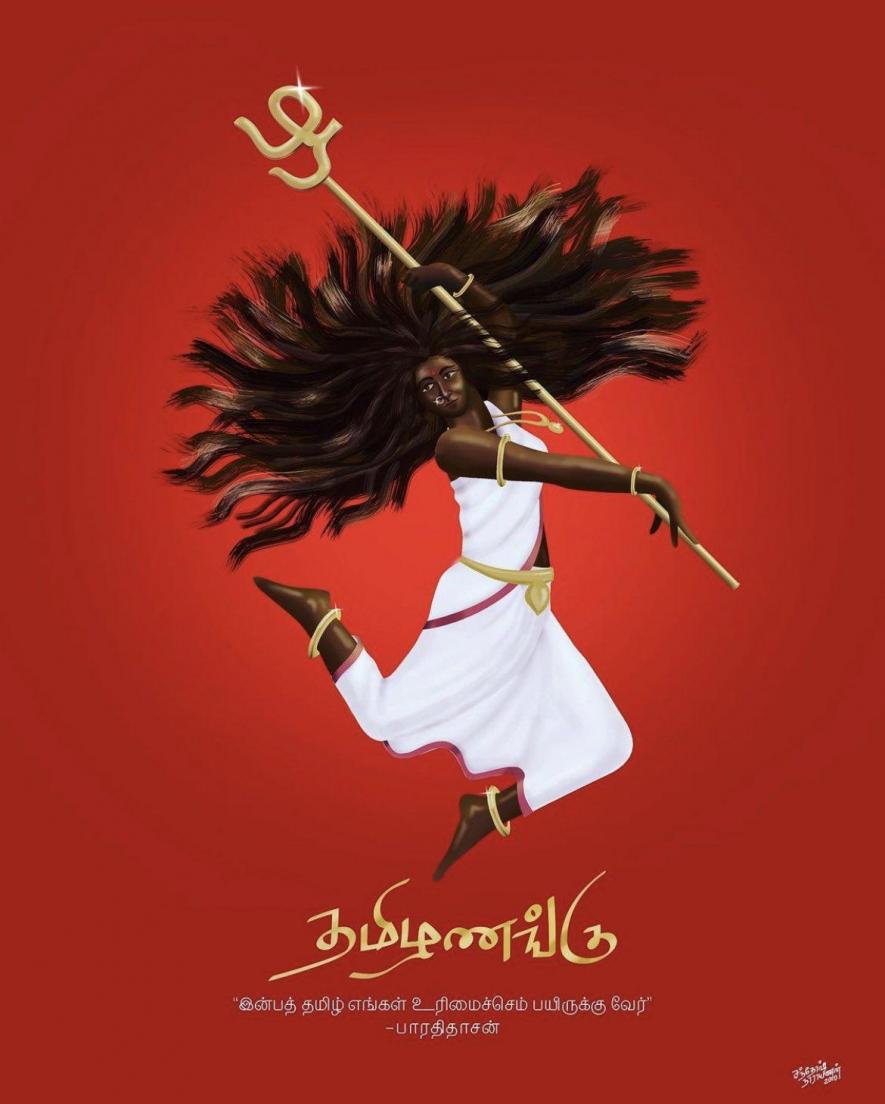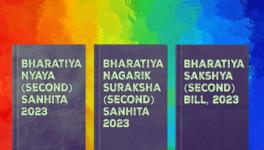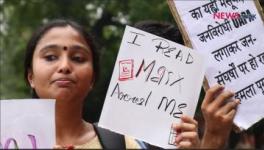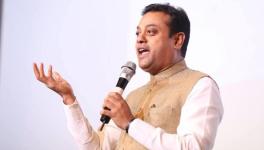BJP’s Hindi Imposition Part of RSS Agenda of One Nation One Language
'Hindi should be accepted as an alternative to English and not local languages. People of different states should communicate with each other in Hindi and not English,' said Union home minister Amit Shah in the 37th meeting of the Parliamentary Official Language Committee.
'There's no compelling situation to learn a language and prove that one is an Indian,' said K Annamalai, a former IPS officer and president of Tamil Nadu state unit of the Bharatiya Janata Party (BJP).
As expected, leaders across the country voiced their opposition, led by the chief ministers of Tamil Nadu and Kerala. The leaders from the northeastern states also joined the chorus against the attempts to impose Hindi with statements against the comments of the Union home minister.
After several decades of anti-Hindi imposition struggle, the state of Tamil Nadu remains at the forefront of the struggle against language imposition and to protect the regional languages.
The BJP-led government, since it assumed power in 2014, has continuously spoken about a single language despite the diversity prevailing in the country for several centuries.
The Rashtriya Swayamsevak Sangh (RSS) has been battling to promote Sanskrit and Hindi. In contrast, it has made its intentions clear on capturing the civil society through cultural intervention, with language imposition being their preferred choice.
OPPOSITION FROM SOUTH
The first words of opposition came from the southern states, including the allies and BJP leaders themselves. Even the Tamil Nadu state unit president of the BJP claimed that Tamil could qualify as the link language, much to the embarrassment of the Union minister.
The arch-rivals in the state, the ruling Dravida Munnetra Kazhagam (DMK) and All India Anna Dravida Munnetra Kazhagam (AIADMK), are on the same page in opposing Shah's statement.
MK Stalin, the chief minister, condemned the attempts to make Hindi the official language. The AIADMK coordinator and former CM O Panneer Selvam (OPS) batted for the two language policy followed by the state and quoted former chief minister CN Annadurai.
In a statement tweeted by OPS, he said that the AIADMK stands firm on the two language policy and cannot accept the imposition of Hindi.
Stalin criticised the efforts of the BJP-led government to push through Hindi as the medium of communication with non-Hindi speaking states.
He also assured that his party would continue to fight for the states' rights and choice of language.
DMK MP Kanimozhi Karunanidhi said that imposing Hindi will not unify the country but only pose a threat to the country's unity.
Kerala CM, Pinarayi Vijayan, came down hard on the Union government during his address in the seminar on 'Centre-State Relationship' organised as part of the 23rd party congress of the Communist Party of India (Marxist) [CPI(M)].
"The BJP and RSS do not want to accept the diverse culture of the nation and want to destroy it, which cannot be accepted," he said.
Leaders from Karnataka and Telugu-speaking states have also opposed the intention to make Hindi the communication language between the Union and states.
AR RAHMAN'S TWEET CREATES STORM
Oscar-winning musician AR Rahman tweeted an image of a woman clad in a white saree named 'Tamizhnagu'. The tweet was made a day after Shah's comments.

Image tweeted by AR Rahman, apparently for a promotion of an album, created controversy
When questioned by the media about Hindi being proposed by Shah as the link language replacing the local languages, Rahman said, "Why should Hindi be the link language? It should be Tamil."
The right-wing forces soon attacked the musician for denigrating 'Tamil Thai' (Goddess Tamil) by portraying her as 'dark skinned' and his reported comments against imposing Hindi. Political parties, including the radical Naam Tamilar Katchi (NTK), extended support to Rahman on the issue. The NTK statement said that Rahman had echoed the opinion of all the Tamils.
CONCERNS FROM NORTHEAST INDIA
The northeastern states are another region where Hindi is not used. Different political parties and civil society organisations have raised concerns against the proposal to make Hindi the communication language.
The Union government has made Hindi the compulsory language in the states' schools, with Arunachal Pradesh and Tripura being the exception.
Appointment of Hindi teachers has also taken place, much to the dismay of the lovers of regional languages. Several bodies, including the Northeast Students' Union, have opposed the regressive measure and wanted students to be taught in their local language.
"This is unacceptable and contradicts the New Education Policy introduced by the BJP-led government, which seeks to support primary education in the mother tongue," said Congress leader and leader of the Opposition Debabrata Saikia, the Deccan Chronicle reported.
ATTACK ON CULTURAL DIVERSITY
The CPI(M) in Tamil Nadu announced a statewide protest on April 19 and demanded that all languages included in schedule 8 be used as the communication language.
The party has accused the Union government of pedalling the fundamentalistic policies of the RSS on language and culture.
"The RSS and the Jana Sangh had always opposed the constitution, national anthem and flag and diverse culture of the Union," the statement said.
The push to impose 'One Nation, One Language' has long been a priority of the RSS and the BJP, which was pushed harder during Shah's 'Hindi Diwas' speech in 2019.
Aadhavan Dheetchanya, general secretary of the Tamil Nadu Progressive Writers and Artists Association (TNPWAA), said, "The BJP government has been popularising Hindi and Sanskrit by naming schemes and programmes in these languages. The RSS and BJP disagree with the rich cultural and linguistic diversity prevailing and want a unitary culture."
Similar efforts were made during the previous regime of the Congress, which were held back due to strong opposition and protests.
"The ideology of RSS is killing other cultures and moving towards a brahminical culture by focussing it on being the nation's culture. Hindi imposition is one such step, but BJP and RSS want to popularise Sanskrit by spending and allocating more funds for its development than the funds allocated to all other languages," Aadhavan said.
Making one language a communication language is considered a step towards centralisation and degrading other dialects.
"Former BJP leader LK Advani has spoken about capturing the civil society through different modalities. Imposing a language and invading other dialects is one such step in achieving this," Aadhavan said.
Get the latest reports & analysis with people's perspective on Protests, movements & deep analytical videos, discussions of the current affairs in your Telegram app. Subscribe to NewsClick's Telegram channel & get Real-Time updates on stories, as they get published on our website.
























